Felipe González. Perfil humano y político.
Miguel Ángel Aguilar y Eduardo Chamorro.
Cambio 16, 1977.
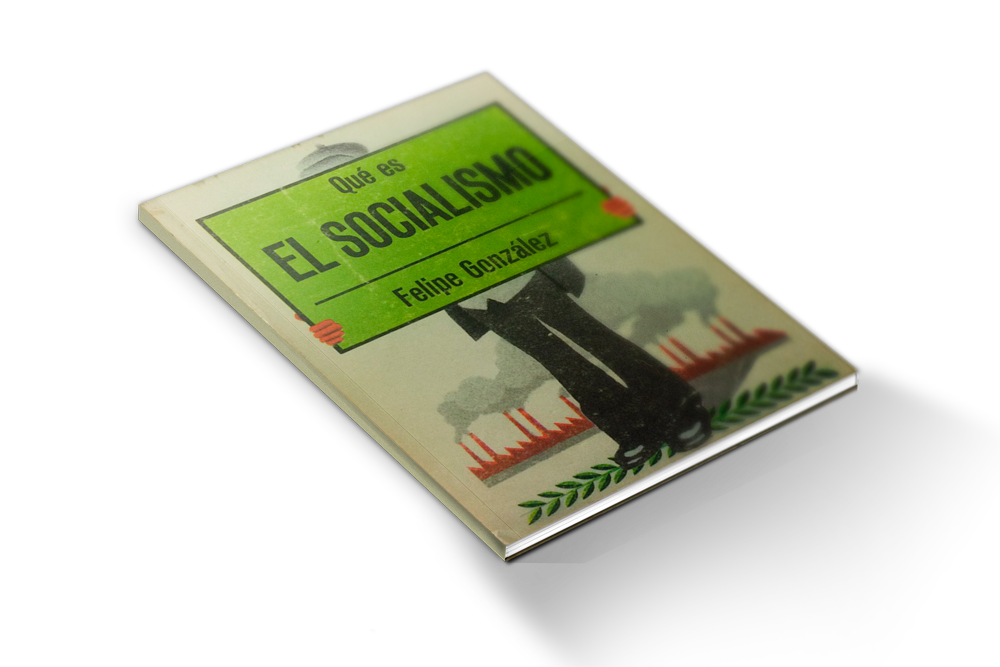
In broad terms socialism may be defined as the extension of the concept of democracy. In other words, as the development as far as possible of democracy in the political, socio-cultural etc. fields. From the point of view of the final aim, the concept is identified with the concept of self-management. However, the response to the major question raised by the title of this publication may be set out in an endless economic, political and socio-cultural treatise.
As well as a brief definition which covers the entirety of the matter but without going into detail, it is also a treatise which is sufficiently extensive to rigorously go into the enormous content of the socialist concept, this brief text serves as an explanatory pamphlet.
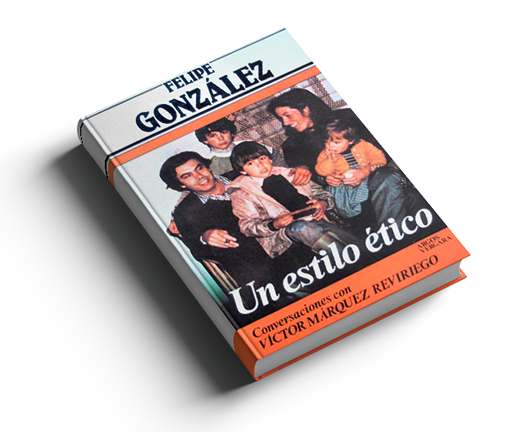
Conversaciones con Víctor Márquez Reviriego
The subject matter of this book is as highly varied as the life of its protagonist. Here he talks about his childhood in a suburb of Seville, of his education in a religious school which was neither traumatic nor enthusiastic, of the cutting of grass to feed the cattle of the family business, sport, Antonio Machín and Cardinal Segura, of reading in the comfortable library of the Casa América, of his memories of Omar Torrijas and discussions with Carlos Andrés Pérez, the paternal sentiments of Willy Brandt and other socialist leaders, the great humility of Olof Palme, the silent and important leadership
of Bruno Kreisky, of his dealings with Adolfo Suárez and Joaquín Garriges, of NATO and Europe, of feelings and reasoning, of religion and life, of de facto power, of reading as a vital necessity, of culture as decoration or as a profound life experience, of the relationship of a father and his children, of the influence of radio and television on political life, of what Felipe González would do were he to leave politics, of the historic project of the PSOE, of health and infirmity, of wax and orange blossom…
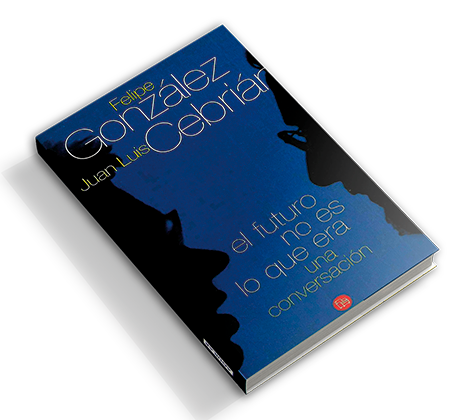
Felipe González and Juan Luis Cebrián
Felipe González and Juan Luis Cebrián set out little known aspects of our past, discover unknown keys and express the opinions which make this book an incitement to debate. A conversation on the future between two protagonists of the transition from dictatorship to democracy. A recovering of our historical memory and a critical look at the present, this is a work with a changing perspective of the understanding of Spain, the story of two men of our time about a country which they would like to be more modern.
From the situation of the monarchy to globalization passing through the role of the armed forces, patriotism, sovereignty, the coup d´état of the 23rd of February and the dirty war against terrorism.
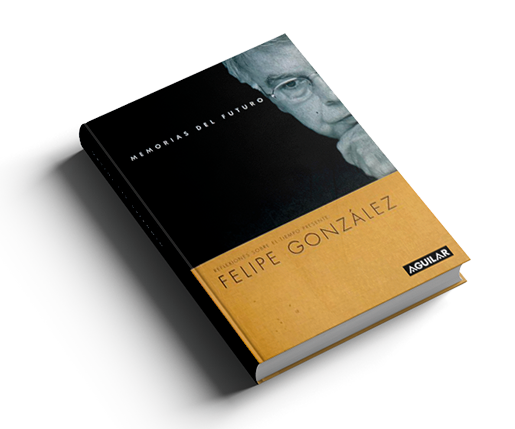
Reflections on the present
Memories of the future brings together Felipe González´s reflections on the key matters of our times in a collection of 53 articles published in the national daily, El País, between 1993 and 2003. The writer analyses matters which cover Spanish politics and the European context and its role in the international sphere. His writings on Spanish politics cover subjects such as the terrorism of ETA, the primaries process of the Spanish Socialist Workers´ Party, the nexus between Spain and Latin America and the relations between Spain and Morroco.
On Europe he covers matters such as the construction of Europe, the Euro and democratic socialism and Europe. In the international sphere he reflects on the Palestine question, the role of Europe in globalisation and relations with Mercosur and Africa, the situation created following the attack on the Twin Towers in New York and ends with the conflict in Iraq. This is a publication which provides an understanding of the past so as to better understand the present.
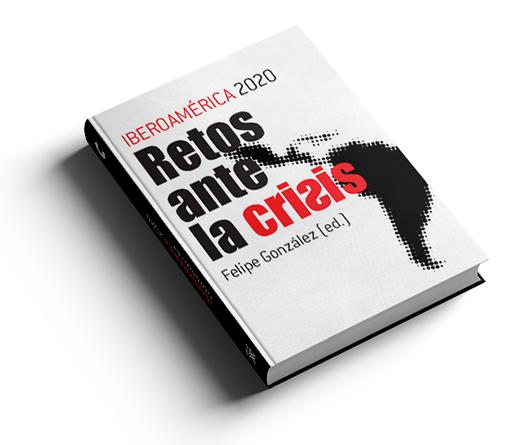
Challenges from the crisis
The subjects covered in the six chapters of this book together with the quality of the authors lead to a review of the reforms necessary in the region to overcome the crisis, to go beyond it and look towards the horizon of the future. The reader will find contributions on the crisis as an opportunity and as a risk, on the need to find a model of growth which generates employment while at the same time redistributing income, on education, training and health as key strategic variables in the drive towards modernization and the equalization of opportunity, on energy and climate change,
on the development of the infrastructure for eliminating bottlenecks in development, on the effect of migration flows, on the challenges of physical and legal security in the light of the most dangerous threats, on the quality of democracy and the institutional reforms for its achievement and on the regional integration action which will lead to the use of the synergies for the region with such great potential for development.
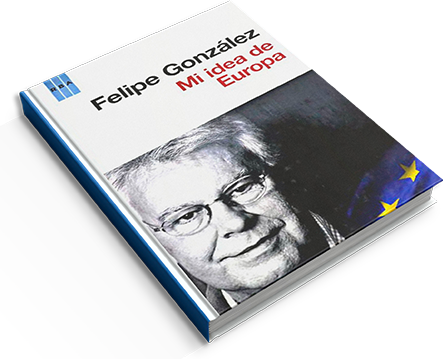
The Old Continent, the European Union is now facing a high level of uncertainty and crisis, a series of challenges the good or bad resolution of which will mark out its future, the consolidation of a strong leadership and the effective operation -and with real powers- of institutions, the internal cohesion of the people and the integration of immigrants, internal security and the development of common action on the international scene for the resolution of conflicts, the relationship with other regions such as Latin America or the nations of the Mediterranean, the response
to challenges in the future such as energy supplies, technological development, education policies, the balance between economic, social and cultural development. Europe is in crisis and needs the courage of hope, the pragmatism of ideas to face a promising future. A convinced Europeanist, a witness and protagonist of the construction of Europe, Felipe González reflects with insight in this book while avoiding clichés and without avoiding argument about the past, the present and the future of this dream of Europe which remains unfinished.
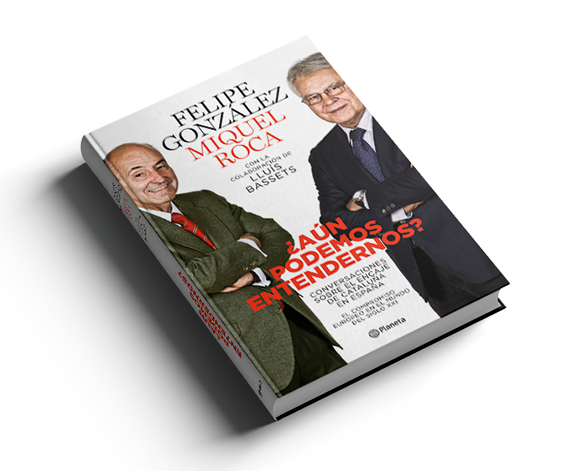
Felipe González and Miguel Roca
More than three decades after the return to democracy and the building of the State of Autonomous Regions, two of the principle actors in the transition from dictatorship to democracy review the evolution of the Spanish political system, the distribution of powers between the autonomous regions and the central government and in particular, the symbolic duality – economic, cultural and institutional as well – between Catalonia and Spain. The reflections on this evolution which began at the height of the Cold War and in a bi-polar world, leads necessarily to the new
context of a globalized economy and a multi-polar world where Europe, Spain and Catalonia are seeking their respective places and voices. The conversations, moderated by Lluis Bassets, cover the most polemical aspects of the redistribution of economic and political power, nationalist demands and sentiments, multi-cultural and multi-lingual societies today where people with a wide variety of origins need to coexist and the problems of governing and the sustainability of future social and productive models.
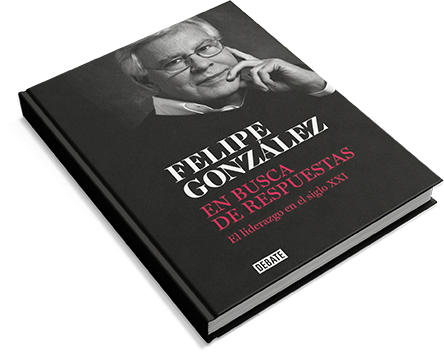
Leadership in times of crisis
The profound crisis which we have been living through for several years is both economic and social but also one of leadership. Leadership –in the words of Felipe González– is characterized by a constant search for responses because the questions remain such as how to improve the world, how to make it fairer, more prosperous and freer. On the basis of his experience of complex moments of the recent history of Spain, Felipe González reflects broadly on what political, business and social leadership mean today and how can the challenges of the present be met to form the bases for a better future.
«Politics should consist of reducing the suffering of people which would be true leadership. If the policies aren´t approved of then they have to be changed, if the political parties aren´t approved of then they have to be changed or their leaders have to be replaced. We have to improve the quality and the content of politics and this can only be achieved with ideas and with participation. If we don´t do it then no one wins and everyone loses».
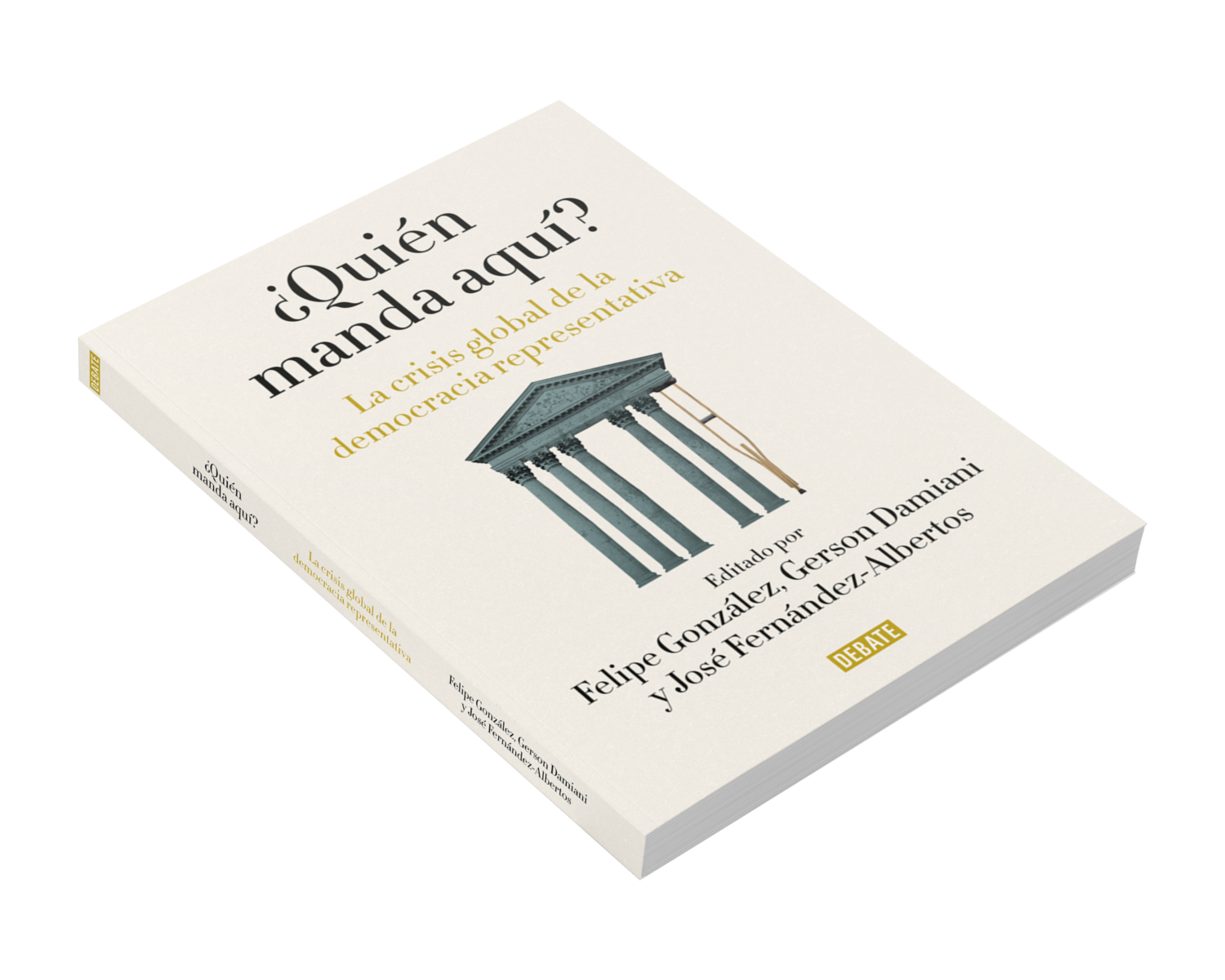
The global crisis of representative democracy
The governance model for western societies is in crisis. The basic pillars which support representative democracy are increasingly called into question by their inhabitants. Many voters feel that their preferences are not sufficiently taken into account by politicians and become open to alternative means for channelling their demands; for their part, governments complain about the ever greater obstacles and restrictions which they need to overcome when they try to carry out their policies; while the founding principles of the separation of powers, majority governments and democratic accountability are increasingly being eroded.
Between spring of 2016 and spring 2017 Felipe González took over the José Bonifacio Chair, an academic programme at the University of São Paulo at the initiative of the Ibero-American Centre (CIBA). Who´s in charge here? Brings together the work of several specialists (José Fernández-Albertos, Gerson Damiani, Víctor Lapuente Giné, Ignacio Molina, Roberto Gargarella, Rafael Jiménez Asensio, Berta Barbet, Juan Rodríguez Teruel, Kelly Komatsu Agyopan, Alberto Penadés and Wagner Pinheiro Pereira along with Felipe González himself) who seek to shed light on these problems while offering solutions which are organised around the four blocks on which the Chair is structured.
Miguel Ángel Aguilar y Eduardo Chamorro.
Cambio 16, 1977.
Eduardo Chamorro.
Planeta, 1980.
José María Maravall.
Taurus, 1984.
Paul Preston.
Plaza & Janés, 1986.
Santos Juliá.
Taurus, 1997.
Mónica Méndez Lago.
Centro de Investigaciones Sociológicas, 2000.
Victoria Prego.
Unidad Editorial, 2002.
Maria Antonia Iglesias.
Aguilar, 2003.
Alfonso S. Palomares.
Ediciones B, 2005.
Álvaro Soto.
Alianza Editorial, 2005.
VV.AA.
Algón editores, 2010.
Joaquín Leguina.
La esfera de los libros, 2012.
Álvaro Soto y Abdón Mateo (Dirs.).
Sílex Ediciones, 2013.
Manuela Ortega Ruiz.
Tecnos, 2015.